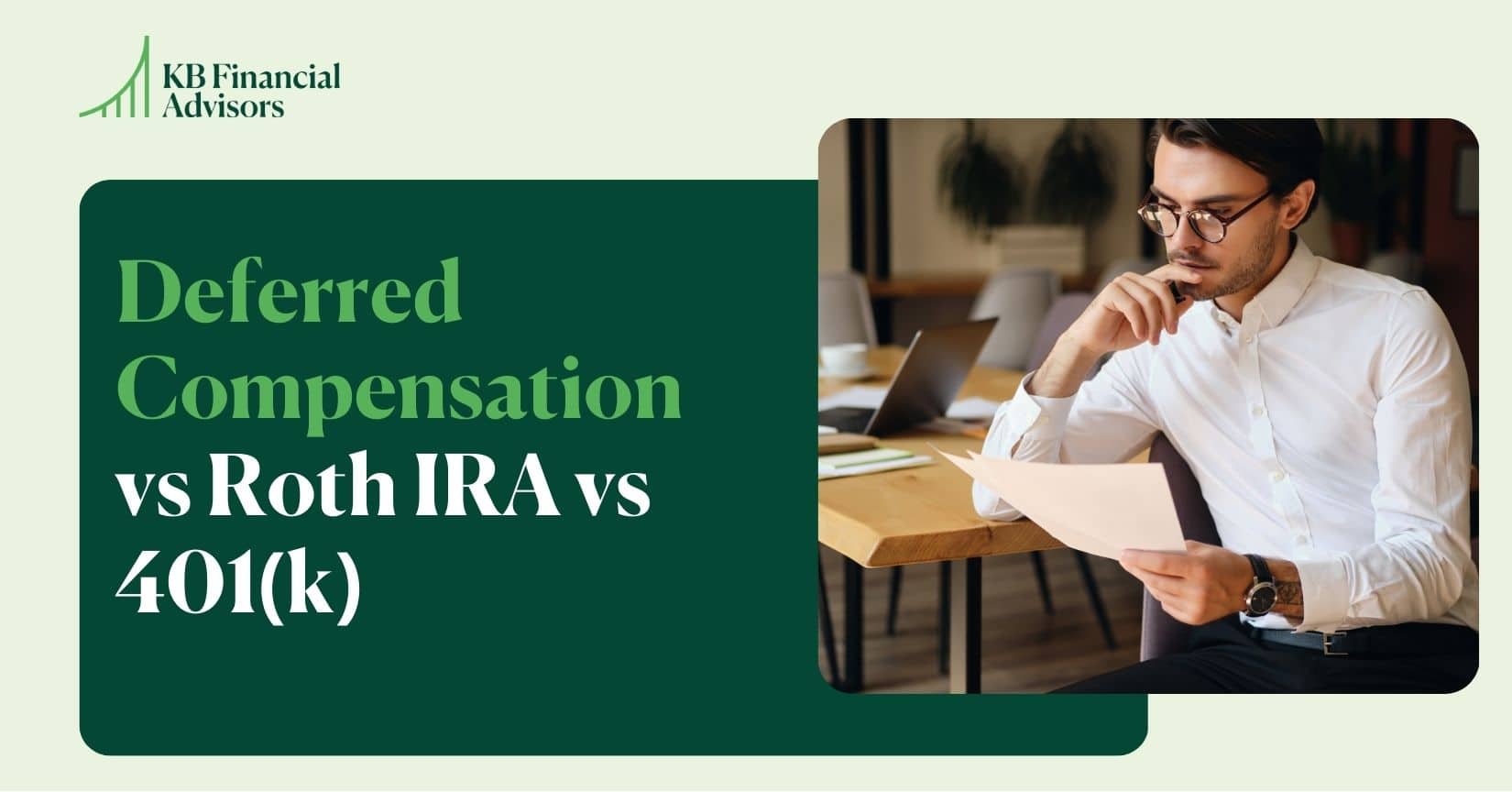Having stock options, RSUs, or an ESPP as part of your compensation package can be a great way to build wealth.
What’s not so great? When you don’t know when to sell stock options, or what moves to make based on their different types.
You might be asking yourself:
- Like, should I sell RSU or ESPP first?
- When to sell stock options?
- Should I sell ESPP right away?
- Should I sell my RSUs when they vest?
After all… taxes? (Some stock options are taxed differently than others.)
Return on investment? (Some stock options are best sold immediately for the best ROI, while others are better off holding for a year.)
The truth is, each type of stock option works differently and knowing those differences can help you make smarter, more profitable decisions.
Types of Stock Options and Equity Compensation To Look For
Understanding what kind of stock options you have is the first step to creating a sell strategy that fits your financial goals.
Incentive Stock Options (ISO)
Incentive Stock Options (or ISOs) are often offered to reward long-term employees. Many times, they serve as part of your compensation package or are offered instead of a traditional cash raise. ISOs don’t typically have traditional income tax when you exercise them, but might trigger the alternative minimum tax (AMT).

Nonqualified Stock Options (NSO or NQ)
Nonqualified Stock Options (or NSOs/NQs) are also a way that employers can offer a benefit to employees. Typically, an employer will offer their employees the option to buy company shares at a set price within a specific time frame. If the employee doesn’t use their option within the given time frame, they lose the option altogether.
Restricted Stock Units (RSU)
A Restricted Stock Unit (or RSU) is a form of compensation that an employer often gives to high-level employees. However, they’re becoming increasingly popular in specific industries for all levels of employees – for example, tech industry professionals likely are compensated, in part, through RSUs. RSUs vest over time, meaning they don’t have value until you’ve completed the vesting schedule. Once they vest, they’re taxed as ordinary income, and if your company goes public, double-vesting may apply.
Employee Stock Purchase Plan (ESPP)
An Employee Stock Purchase Plan (ESPP) is a larger program run by a company that lets employees buy shares at a discount through payroll deductions. Taxes apply only when you sell the shares, not when you buy them. Many employees sell ESPP shares right after purchase to capture the discount as a small, near-instant profit.
And…
You may also find that you have shares from past stock option exercise as part of your total stock option portfolio.
The Dilemma: When To Sell Stock Options?
Knowing what to sell and when to sell (or whether you should sell at all) can be a tough decision to make. You might feel FOMO (Fear Of Missing Out) watching colleagues cash out, or you might freeze up in analysis paralysis, unsure what’s best for your taxes and long-term growth.
Either way, the key is to have a financial strategy in place for your stock options. Knowing what you’ll do before an IPO or your next trading window ensures you act confidently and strategically.
Selling Stock Options and Taxes
A plan to sell stock options is, essentially, a tax plan. No matter which way you look at your stock options, selling them is going to involve paying taxes in one form or another. There are a few different types of taxes you might wind up paying:
- Regular Income Tax
Also referred to as ordinary income tax (This is the tax you pay on your salary). Some stock options will be subject to regular income tax.
- Capital Gains Tax
This is the tax you typically pay on your investments. Capital gains tax can be long-term at a lower rate than regular income tax if you’ve held your investments for a year or more.
- Alternative Minimum Tax (AMT)
AMT is different than any other tax, and often more difficult to understand. Typically, AMT is triggered by Incentive Stock Options (ISOs), but it can also be triggered if you have a high income.
How Do You Prioritize Selling Based On Taxes?
The key to deciding if and when you should sell is to understand how taxes impact each of your employee stock options and build a strategy from there. Let’s take a look at a few examples of the most common stock options available based on typical tax impact and expiration risk:
Restricted Stock Units (RSU) – Should I sell my RSUs when they vest?
RSUs are taxed as ordinary income when they vest. However, it’s important to keep in mind that RSUs may be subject to double-vesting if your company is going through an IPO. If you received your RSU in a pre-IPO company, your stock option may be dependent on if/when your company is acquired or goes through an IPO..
Priority #1: When developing your tax-focused stock option strategy, RSUs are the first you should consider selling.
Employee Stock Purchase Plan – Should I sell my ESPP right away?
There are no taxes when you purchase stock within an employee stock purchase plan, but taxes are incurred when you sell. It might be wise to contribute to your ESPP, then sell shares soon after purchase to lock in your discount and avoid market fluctuations
Priority #2: ESPPs are the second stock option you should consider selling.
When to sell stock options…
Nonqualified Stock Options
Non-qualified stock options work a little bit differently from ESPPs, but have a similar framework. Just like in your ESPP, you control the timing of your taxes with non-qualified stock options. You pay regular income tax on your bargain element when you choose to exercise your NQs, and you might need to pay capital gains tax if you hold the shares after exercising your options.
Typically, your best strategy is to wait until your company stock hits a price you’re comfortable with or when you need liquidity. Exercise and sell on the same day to avoid additional capital gains.
Priority #3: NQs are the third stock option you should consider selling.
Incentive Stock Options
ISOs aren’t taxed at regular income tax rates when you exercise your options. However, you may run into possible AMT. The good thing is that you’re in control of the timing here. You’re only going to incur taxes if and when you exercise your options, which means you have a lot of planning opportunities with your ISOs that could potentially help you navigate around the AMT. Keep in mind that the portion of income you receive from the exercise of your ISO that might be subject to AMT can be calculated using this simple formula:
Number of ISO Exercised x (Current FMV – Exercise Price) = The Bargain Element
ISOs offer a lot of big tax advantages that are key for tax planning, especially if, like many tech professionals, you’re a high-income earner.
Priority #4: ISOs are the fourth stock option you should consider selling.
Shares
Shares should be looked at in two different ways:
- Shares that are on a vesting schedule.
- Shares that you own outright, or that have already vested.
Shares that have a vesting schedule based on your company’s performance are usually triggered by an acquisition or an IPO. If this is the case, sell them once vested to avoid large future tax bills.
There’s usually no tax advantage in holding vested RSU shares after an IPO or acquisition. In fact, waiting could lead to a larger tax bill, since the stock price might fluctuate while the taxable income from vesting remains fixed. Even if you do sell quickly, it’s possible that the income tax withholdings on your RSU won’t be sufficient, and you’ll probably owe additional taxes when you file next season.
If your shares aren’t on a vesting schedule (say shares from a past exercise of options) that’s tied to company performance, holding them longer might make sense. These shares are typically subject to capital gains tax, which can be lower if you’ve held them for over a year.
A key thing to remember is to make sure your cost basis is correct when exercising your stock options. Double-check the cost basis if the shares you’re selling are from the exercise of ISO, and you paid AMT on that exercise. This can help to protect you against double taxation – an all too common issue among taxable stock options.
Still unsure whether or not you should sell your shares? It might be tempting to sell shares before other equity types because they’re often taxed at the lowest rate. But in most cases, shares should be the last asset you sell and here’s why:
- Your shares will never expire. Unlike stock options, which have an exercise window, your shares are yours indefinitely.
- Exercising stock options usually triggers some type of tax event, but shares aren’t taxed until you sell. Your cost basis will likely be higher in any unexercised stock option than in long-term shares – so exercising and selling stock options first makes sense. This could mean you have a bigger opportunity for the stock price to fall and create a capital loss.
Priority #5: Shares are usually saved as the last thing you want to sell.
That said, certain personal or financial circumstances may justify selling earlier. When in doubt, consult your financial planner to decide what’s best for your unique situation.
Basic Guidelines to Keep In Mind
To put it simply, there’s a general framework that most people follow when selling stock options and equity:
- RSU
- ESPP
- NQ
- ISO
- Shares
Each person’s financial situation, goals, and stock option mix are unique. That’s why a one-size-fits-all approach rarely works when deciding when to sell stock options.
Working with a financial planner to help you determine what strategy will be best for you is key to saving on taxes while still getting the income you deserve. And we’d be happy to help you. Click the button below to set up a consultation today.




